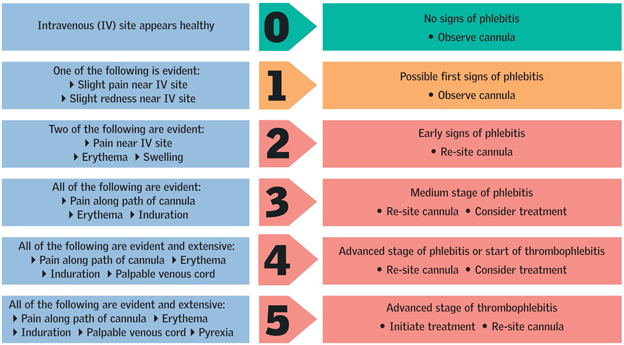Common Medications used in NMC OSCE
ACommon Medications used in NMC OSCE
 Medication administration in NMC OSCE exam is another head ache for some of the candidates appearing. Usually there will be only two or three medication to be administered. But you have to take care of things like known allergies of patient, inlegible prescription and about medication already administered. In some cases weight of patient will be given which will be less than 50 kgs in which you cannot give Paracetamol. Keeping in mind of all these small things make you pass your NMC OSCE exam. In this article let me introduce you about common medications that are used in NHS hospitals across UK and about their indications and possible side effects which you have to tell to the patient during your implementation station.
Medication administration in NMC OSCE exam is another head ache for some of the candidates appearing. Usually there will be only two or three medication to be administered. But you have to take care of things like known allergies of patient, inlegible prescription and about medication already administered. In some cases weight of patient will be given which will be less than 50 kgs in which you cannot give Paracetamol. Keeping in mind of all these small things make you pass your NMC OSCE exam. In this article let me introduce you about common medications that are used in NHS hospitals across UK and about their indications and possible side effects which you have to tell to the patient during your implementation station.
Common Medications, their Indication and Possible Side Effects used in NMC OSCE Implementation Station. Common Medications
Cocodamol
given for mild to moderate pain
Side Effect – Abdominal pain, constipation, if overdosed Liver damage and Hypothermia
Paracetamol
For mild to moderate pain and pyrexia
Side Effect – Skin reactions and malaise
Ibuprufen
For pain and inflammation
Side Effect – Dizziness, Drowsiness
Codeine
For mild to moderate pain
Side Effect– Abdominal pain and Constipation
Enalapril
For Hypertension
Side Effect – Blurred Vision, Dyspnoea
Digoxin
Used as cardiac glycoside, increases myocardial contraction, reduces conductivity with AV node
Side Effect – Dizziness, blurred vision, arrythmias
Verapamil
For Angina and Hypertension
Side Effect – Head Ache, Dizziness, Constipation
Bisoprolol
Antihypertensive and angina medication
Side Effect – Cramps, depression, muscle weakness
Co amoxiclav
In infections (Antibiotic – pencillin group)
Side Effect – Nausea, Vomiting, Diziness, head ache
Amozicillin
Antibiotic for infection (Pencillin group)
Side Effect – Nausea, Vomiting
Pencillin
Antibiotic for infection
Side Effect – Fever,Diarrhoea, Anaphylaxis

Glicazide
Antidiabetic for Type 2 DM
Side Effect – Hypoglycemia
Metformin
Antidiabetic with less chance of going in hypoglycemia
Side Effect – Abdominal pain, nausea, vomiting, taste disturbance
Levothyroxine
Thyroxine Sodium (For hypothyroidism)
Side Effect – Heat intolerance, diarrhoea, fever and flushing
Cyclizine
Antisickness medication for nausea, vomiting and vertigo
Side Effect – Drowsiness and dizziness
Ondansetron
For Nausea and Vomiting (Anti emetic)
Side Effect – Head ache, constipation, flushing
Prednisolone
For exacerbation of COPD, mild to moderate acute asthma, inflammatory disease (group – corticosteroids)
Side Effects – Increased Blood Sugar Levels
Vitamin K
For patients with major bleeding who are on warfarin
Side Effects – Anaphylactic Reactions
Warfarin
For prophylaxis of embolization, treatment of venous thrombosis and Pulmonary Embolism
Side Effects – Bleeding
Hydroxocobalmin
Pernicious/macrocytic anemia (Vitamin B12 supplement)
Side Effect – Nausea, rash, fever, hypersensitivity reactions
Calcium Carbonate
Hypocalcemia
Side Effect – GI Disturbances, hypercalcemia
Trimethoprim
Antibiotic (mainly for UTI)
Side Effect – Diarrhoea, nausea, vomiting, stomach upset, loss of apetite, head ache
Sertraline
Antidepressant for depression, anxiety, panic disorder
Side Effect – Nausea, tremors, headaches, dizziness, diarrhoea, loss of apetite, anorexia, fatigue, insomnia, mood changes, aggression and sweating
Bisoprolol/Attenolol
For hypertension, angina, arrhythmias, heart failure and anxiety
Side Effect – Postural Hypotension, Bradycardia, dizzyness, bronchospasm, fatigue, coldness of extremities, sleep disturbances
Amlodipine
Antihypertensive and angina prophylaxis
Side Effects – Abdominal pain, nausea, palpitation, flushing, oedema, headache, dizziness, sleep disturbances, fatigue, Shortness of Breath
Diclofenac
NSAID used for Pain and inflammation
Side Effect – Nausea and Vomiting, Dizziness, head ache and pain, constipation, indigestion
Codeine Phosphate
Opioid analgesic
Side Effect – Dizziness, tremors, abdominal cramps, constipation
Gabapentin
Anticonvulsant (Antiseizure medication)
Side Effect – Dizziness, head aches, constipation, nausea and vomiting
Metaclopramide
Antiemetic and an upper GI Stimulant
Side Effect – Dizziness, head aches, constipation, nausea and drowsiness
Ferrous Sulphate
Antianemic nutritional supplement (Iron Supplement)
Side Effect – Head Ache, dizziness, abdominal cramps, constipation, black stools
Furosemide
Diuretic and antihypertensive (Water Medication)
Side Effect – Head aches, dizziness, constipation, abdominal cramps, nausea and vomiting
Omeprazole
Proton pump inhibitor, anti ulcer medication
Side Effect – Head Ache, dizziness, abdominal pain, constipation
Salbutamol
Bronchodilator
Side Effect – Palpitations, tachycardia, chest discomfort, sore throat, dizziness, tremors, nausea, loss of apetite
Beclomethasone
Corticosteroid
Side Effect – Fever, difficulty breathing, body ache, tightness of chest, dry throat, cough
Actimel
Probiotic suppliment for patients on antibiotics

Common pitfalls
– BP Medications – Ask for BP and PR before administering it
– Digoxin – Ask for PR before administering it
– Paracetamol – Confirm weight is above 50KGs before administering, note for frequency of dose prescribed
– Always check stat and prn medications already administered. Don’t give it again if its not within the frequency times
– Always check for legible prescriptions
– If patient is on oxygen, confirm current saturation with examiner and keep it ongoing if less than target saturation
– If patient is on IV fluids, confirm that patients cannula site is devoid of redness, inflammation etc using WIP score and check Batch number, expiry date of iv fluid. Also check for total running time prescribed.
– Don’t forget to identify patient again before giving first medication
– Also Don’t sign before examiner is telling you that patient has swallowed the medication
– Don’t forget to put the correct code on medications not administered and write the medication name along with reason for not administering at the back of the drug chart. Common Medications
– Don’t forget to check allergies before administering any medication
– There is no problem in giving two BP medications at same time
– IF you are unsure about giving any of the medications prescribed, DONT DO IT and verbalize that i will escalate the matter to concerned doctor and will act accordingly.
Conclusion
Hopes this article throws light into common medication used during Implementation station of NMC OSCE. Always bear in mind that if you are unsure about any medication, don’t give it.







